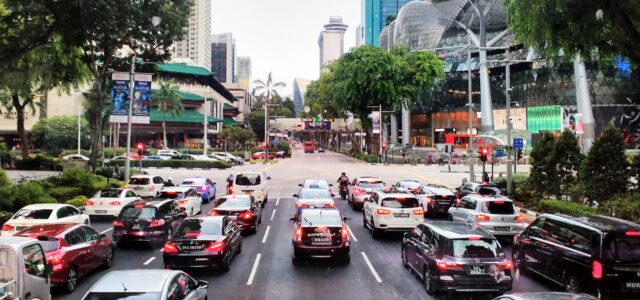Analysts back ‘restrictive’ but ‘justified and strategically sound’ cross-border ride-hailing ban amid risks to local taxi industry
analysts-back-restrictive-but-justified-and-strategically-sound-cross-border-ride-hailing-ban-amid-risks-to-local-taxi-industry
#Analysts #restrictive #justified #strategically #sound #crossborder #ridehailing #ban #risks #local #taxi #industry,
SINGAPORE: Singapore’s decision to keep a ban on cross-border private ride-hailing vehicles for cross-border trips between Singapore and Malaysia has been described by analysts as ‘restrictive’ but ‘justified and strategically sound’ amid potential risks to the local taxi industry.
Daniel Chow, principal at Arthur D. Little Southeast Asia, told Singapore Business Review that commuters already have cross-border buses and the Johor Bahru–Singapore Rapid Transit System, which will start running by 2027, as alternatives, noting that from a transport policy perspective, the decision, while restrictive, is justified and strategically sound.
Singapore Business Review reported that on Aug 3, the Land Transport Authority (LTA) said it has no plan to ‘fully liberalise’ cross-border operations to ride-hail services, keeping the arrangement limited to the current taxi quota of about 200 taxis from each side under the Cross Border Taxi Scheme.
Terence Fan, assistant professor of strategy and entrepreneurship at Singapore Management University, said that while demand “outstrips” supply during festive seasons, the number of cross-border taxis is more than capable of handling regular demand.
He noted that unless alternatives can handle regular demand, Singapore is unlikely to allow ride-hailing vehicles to cross the border.
Meanwhile, other experts raised concerns about enforcement and driver standards.
Masaki Honda, vice president of mobility at Frost & Sullivan, said harmonising regulations between Singapore and Malaysia would be very complex and that keeping restrictions in place ensures oversight remains under Singapore’s transport ecosystem.
Mr Fan echoed this, saying, “How can we catch nonconforming vehicles or drivers if they are out of Singapore, or if they are in Singapore for only a short amount of time?”
Timothy Wong, senior economics lecturer at the National University of Singapore, added that if Malaysian cars were allowed into Singapore with passengers, they should still be subject to local safety and driver standards, warning that lowering standards could undermine consumer confidence in ride-hailing services. Mr Wong also pointed out that the decision helps protect local taxi drivers.
As of July, Singapore’s taxi fleet dropped to 12,261 from 13,343 a year earlier, while private-hire cars rose to 93,966 from 85,881.
Mr Chow said that local taxi firms, even those running their own booking apps, would struggle to compete with larger regional platforms like Grab, which can tap cross-border networks more easily. He also pointed out that Malaysian drivers gain from lower fuel and maintenance costs, while stricter licensing in the city-state raises compliance expenses.
Mr Honda warned that this could result in “significant trip losses” for Singaporean drivers, as Malaysian drivers may offer lower fares.
The LTA said they are working with Malaysian counterparts to improve the Cross-Border Taxi Scheme. Measures being considered include app-based bookings for licensed taxis and expanding boarding and drop-off points beyond Ban San Street Terminal in Singapore and Larkin Sentral in Johor Bahru—one of the reasons the quota is underused, Mr Honda said.
Mr Honda proposed revising licensing rules and using platforms like Grab or Gojek to make cross-border transactions more transparent.
Mr Wong added that authorities may want to encourage passengers willing to share taxi rides across the border, suggesting that if two people are travelling between nearby locations in Singapore and Johor Bahru, they could be incentivised to share a taxi for the trip. /TISG
Featured image by Depositphotos (for illustration purposes only)
